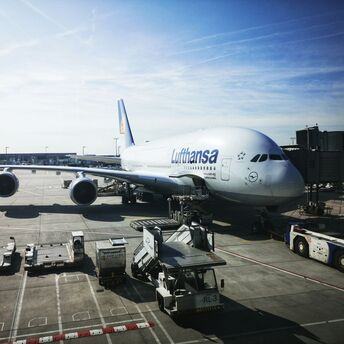Air Canada Delays Tel Aviv Flights: A Strategic Pause for Travelers

Air Canada is moving the return date of its Tel Aviv route to October 9, 2025. The airline had initially planned for an early September return, but changing dynamics prompted a reassessment and a decision to delay the return. Amid ongoing instability in the region, the airline has revised its schedule, prioritising the safety of passengers and crew as conditions continue to fluctuate. This change also demonstrates how airlines are being particularly cautious about resuming routes to destinations where the situation remains uncertain.
The new schedule affects people who had trips planned to Israel between mid-July and early October, meaning they’ll have to adjust their plans quickly. If your plans have changed because of this, you can choose to travel at a later time, go somewhere else instead, keep the booking as credit for a future trip, or ask to get all your money back. Communications outlining individual options are being sent to impacted customers. Travelers who booked through third-party agencies should contact those providers directly to make any necessary changes.
Although the suspension might appear to be a minor delay, its implications extend well beyond the hassle of rebooking. For many travelers, the postponement adds a layer of unpredictability to summer and early fall plans, particularly when important personal events or time-sensitive business trips are involved. Disruptions like these underscore the importance of remaining adaptable and thinking ahead, particularly when managing travel plans that can change at any time. Traveling through regions where conditions can shift unexpectedly calls for a well-prepared plan, helping people stay composed and respond effectively when situations change suddenly.
On the other hand, travelers have additional time to reassess and adjust their travel arrangements. This period presents an opportunity to evaluate alternative travel options, review cancellation terms, and enhance readiness with digital tools and international mobile connectivity. Staying connected via mobile networks is often the most dependable method for handling unexpected changes while traveling. Technologies like eSIM make it easier to stay online while traveling, offering the ability to switch between regional data plans without relying on physical SIM cards or local networks.

For travelers navigating route changes across various regions, companies like GigSky provide adaptable eSIM plans that cover multiple zones, including Israel, ensuring consistent connectivity without the need to swap physical SIM cards. GigSky, for example, provides versatile data options aimed at internet for travel, from brief trips to extended stays, with some plans offering unlimited daily usage to accommodate different traveler preferences and connectivity demands. Additionally, eligible Visa cardholders in Canada may receive special perks from GigSky, including 1 GB or 3 GB of free international data valid for 15 days, along with discounts of 10%, 20%, or 30% on future plans depending on their specific Visa card tier.
The recent decision by Air Canada to push back its Tel Aviv flights shows how quickly global travel plans can shift. In uncertain times, those who remain mentally nimble and open to change are usually best equipped to adapt. Changes to plans might feel like a burden, but they also foster a mindset geared toward forward-thinking, preparation, and flexibility in an environment where circumstances can change without warning.



















